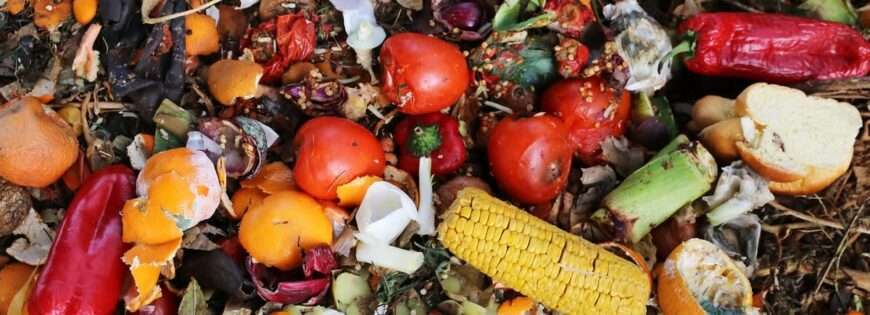What are mango waste products?
Mango waste products that include mango peel, mango seed or kernel and mango fibre have enormous nutritional and functional value, the same as mango puree. Mango pulp is an important mango byproduct and raw material for all secondary processed mango products. Mango pulp, also known as mango puree, is a thick and smooth substance manufactured by breaking up the insoluble fibrous sections of ripe mangoes. The byproducts of mango retain fresh flavour, sweetness and nutrients since the puree is extracted naturally. Processed fruit manufacturers in India are well-equipped with advanced technology and manufacturing facilities to meet the demand of local and international markets. The fruit juice industry is the major consumer of aseptic mango pulp.
Processed products of mango – mango byproducts
The mango is one of the essential fruits with a high potential for processed food products in developed and developing countries. Mango is the world’s second most traded tropical fruit and ranks seventh in production. Mango puree, pulp, and concentrate are the primary processed products. The mango pulp makes most of the standard secondary processed products. The secondary processed products include fruit juices, fruit drinks, nectars, dairy products, baby foods and other processed products.
The waste products of mango
- Mango seeds
- Mango powder
- Mango peel
- Mango fibre
- Mango leather
Mango seeds – The most crucial mango by product
Mango byproducts such as peel and mango seeds are high in bioactive compounds such as carotenoids, polyphenols and dietary fibres. The byproducts of wastes during mango processing are used to manufacture animal feeds. This increases the value of fruit, thereby reducing wastage. At ABC Fruits, we manage to separate the peels, mango seed, and fibre with the help of destoner machinery. The peel and fibre are used to produce biogas. The mango seeds are used as the boiler feed. ABC Fruits is also a mango seed supplier that supplies mango seeds to livestock feeds.
Apart from the animal feeds as pallets, Mango seeds are also used for human consumption. Mango seed powder is another additional product made from mango seeds. The mango seed powder has enormous health benefits. Mango seed powder is used to manufacture traditional medicines and other skin and hair care products. Mango seed adds great value addition to the economy and small-scale businesses.
Mango powder – One of the in-demand mango byproducts
Mango powder is another secondary processed product manufactured from mango pulp. Mango powder is used to enhance a variety of foods and beverages, including ice cream, yoghurt, and the confectionery industry. The dried mango powder is manufactured by dehydrating aseptic mango pulp to a moisture level of 3% via spray or drum dryer. Mango jams and jellies are also manufactured as per the same process of manufacturing mango powder. The dried mango powder is mostly used for culinary purposes. It has replaced the use of tamarind to create a tangy flavour. It is also called amchur powder in the north Indian region. Due to its enormous health benefits, including antioxidants and vitamins, mango powder has created a good demand in the B2B industry.
Mango peel
Mango peel is an important byproduct in the mango processing industry. It contributes 15-20% of the total weight of the fruit. The mango peel is a good source of biologically active substances such as carotenoids, polyphenols, and Vitamins. Mango peels contain more
polyphenols than pulp that can be used in various food formulations. This increases the value of the fruit and improves its economic importance. Recent research also shows that lactic acid can be produced from mango peels. Mango peels are now widely used in the pharmaceutical industry for creating herbal extracts and for R&D purposes.
Mango Fibre
Mango dietary fibre has generated a lot of attention as a functional food ingredient in recent years. The presence of phenolic compounds confers inherent antioxidant capacity. As a result, it is capable of producing low-cost nutritional dietary supplements. Research shows mango peel powder will be a great antioxidant source. This will contribute a great value addition to the mango fruit. The destoner machinery separates the peels and fibre. The fibre is also used as an organic fertilizer to produce biogas that fuels boilers or generators.
Mango leather
The Netherlands imports 55% of all mangoes in Europe, making it one of the leading importers and traders of mango. The trade hub imported 1,80,000 tonnes of vegetables and 500000 tonnes of fruits in 2019. The Netherlands-based company manufactures mango leather from the waste of mango. This product often referred to as vegan leather, is made from waste and spoiled mangoes. This adds value to the economy, reduces waste, and creates an environment-friendly product.
Research and ideas are also being carried out in India to produce mango leather. Since India is the largest producer of mangoes, we are rich in raw materials. Technical Know-how could create a lot of opportunities and play a role in improving the GDP.
Enhanced value of mango fruit processing
Although selling mangoes as fruits is the most prevalent technique followed by small-scale growers across developing nations, processing the fruit into a healthy and safe product without altering its flavour and taste adds more value. Since pulp/puree is used as a primary processed product for producing other products, the net profit derived from processing into various products has consistently increased over the years. Processing mango into various products increases the potential and reduces the post-harvest losses reported in mango.

